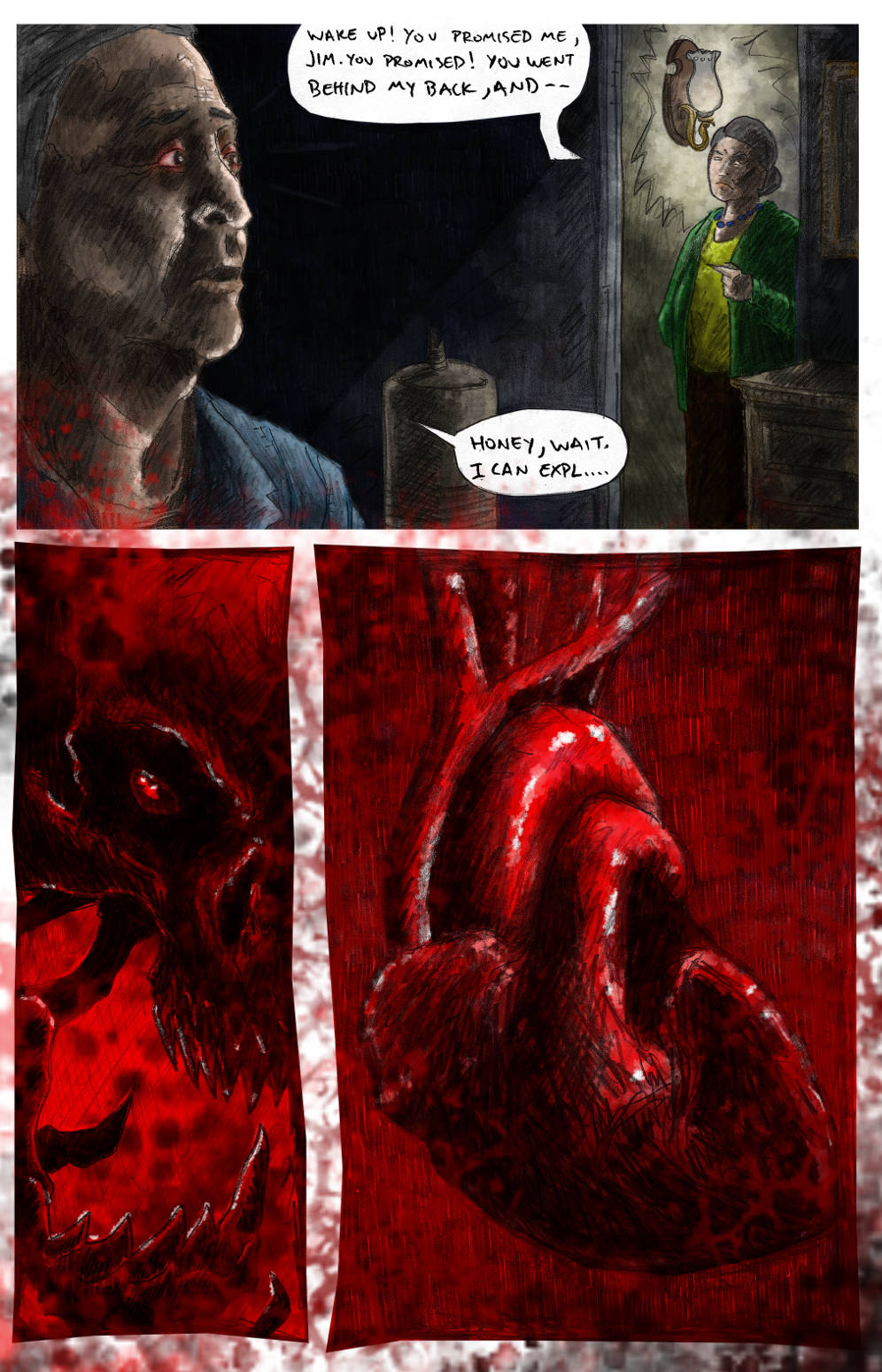The Archive
A while ago, I wrote about the importance of getting the dynamic between Jim and Jennie just right. If he’s too much of a miser he’s not likable, and here’s where getting that balance pays off.
This story is, at its heart, a drama told like a fairy tale. Jim does something he isn’t supposed to (stealing the jewel), and he is punished for it. No matter how it ends (and there’s no way I’m going to spoil it here!), the setup is the same and acts on the same set of morals. Stealing is bad, and therefore must be punished. Whether the punishment is just or not depends on how the story progresses, but ultimately it’s dealing with the same issue.
So it’s critical that, despite Jim’s greed, you still care for him at this point in the story. This was a very tricky part of this script, and I realized as I wrote that the audience needed to believe that Jennie could still love him despite his faults. She is so sweet and good-natured, and if the reader/viewer can believe that she genuinely cares for him then they can also care for him. She’s critical in this scene, and upset - but not mean. That’s a big difference.
My early drafts missed the mark on this in many ways. One that stands out to me was a scene that took place earlier in the story: they went to a party where Jim drinks too much and insults the other party-goers. This changed Jennie and Jim’s relationship in such a way that she seemed like the submissive wife who apologizes for her husband’s bad behavior. You felt sorry for her and, consequently, felt her embarrassment, shame, and anger. So as the story progressed and the creature moved through Jim’s veins, the audience had no sympathy for him.
Getting this dynamic right was the final part getting this story to work. It was a huge learning process, and taught me a lot about storytelling.
One final note: there was another great reason to cut the scene at the party, even if it had worked well. As soon as the story left the antique shop, the tone completely changed. I realized that the antique shop itself was a central part of the story, because it gave the tale atmosphere. Atmosphere is one of the most important parts of horror, because it sets a mood that influences how the viewer experiences the story - creating a sense of foreboding, mystery, tension, etc. Jason killing teenagers on a bright sunny day isn’t nearly as scary as in a pitch-black thunderstorm. There’s a reason a lot of horror tales start with “On a dark and stormy night…”




